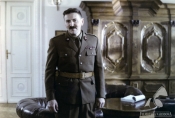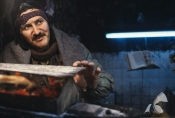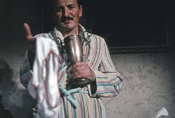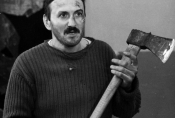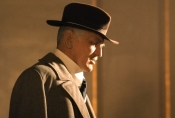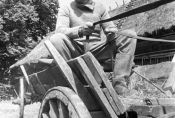Krzysztof Majchrzak
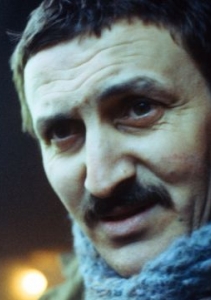
Before going to theatre school, he studied vocal pedagogy at the State Higher School of Music in Łódź. He never gave up his passion for music – he is not only an actor, but – in his spare time – a musician, member of the jazz quartet A2.
He was born on March 2, 1948 in Gdansk. He is a graduate of the Acting Department of the State Higher School of Theatre in Warsaw (1974). Actor of several theatres in Warsaw: Narodowy (1974–1975), Powszechny (1975–1991) and Studio (since 1991). Winner of the Zbigniew Cybulski Award (1980) and the Golden Duck for the best Polish actor of 1998 (1999).
He made his debut in the short TV film by Janusz Kubik Draka [Fracas] (1970), and he appeared on the big screen for the first time four years later in Ziemia obiecana/The Promised Land (1974) by Andrzej Wajda. In the same year, he starred in the TV film by Ewa Kruk Koniec babiego lata [The end of Indian summer] (1974). The performance as Janek Kozioł, a country boy, brought him the award for best actor in the leading role at the Polish Film Festival in Gdańsk (1975).
1979 was a very intense year for Majchrzak,: In Wolne chwile [Free moments] by Andrzej Barański, set in a student theatre, he played the director. He also appeared in an interesting feature-length debut of Piotr Szulkin titled Golem, but the real breakthrough was his role as Władysław Góralewicz (inspired by the real-life biography of Stanisław Cyganiewicz) in Aria dla atlety/Aria for an Athlete by Filip Bajon, a dramatic story of a brilliant wrestler, opera aficionado, and collector of statues of Atlas supporting the globe. Another great performance was his role in Konopielka (1981) by Witold Leszczynski, a spectacular adaptation of the popular book by Edward Redliński. Majchrzak played Kaziuk, who is accused by a visiting city dweller of superstition and backwardness, and whose curiosity is stirred by the views and deeds of the young teacher. The role earned him the Golden Cane award at the International Comedy Film Festival in Vevey (1983). He also starred in Leszczyński’s subsequent film, Siekierezada/The Axiliad (1985), based on the novel by Edward Stachura, a story of a young poet who, unable to come to terms with the heartlessness and cruelty of civilisation, flees somewhere “to the far end of the world.” Majchrzak played a forest worker named Kaziuk.
The actor's collaboration with Jan Jakub Kolski yielded some interesting results: Father Andrzej in Cudowne miejsce/Miraculous place (1994), Józef Andryszek the Fifth in Historia kina w Popielawach/ History of Cinema in Popielawy (1998) and Frederick in the film adaptation of Gombrowicz’s Pornografia/Pornography (2003) are some of his best roles. The first one earned him the award for Best Supporting Actor at the festival in Gdynia (1994), the second – the award for Best Actor, also in Gdynia (1998), as well as the best actor award at Prowincjonalia in Słupca (1999), and the third one – another award in Gdynia (2003) and Słupca (2004).
Among Majchrzak’s achievements, there are several smaller, but no less successful roles: defence training teacher in Yesterday (1984) by Radosław Piwowarski, Major Bolek in Kuchnia polska/Polish Cuisine (1991) by Jacek Bromski, stock exchange “shark” in Amok (1998) by Natalia Koryncka-Gruz, and Tigellinus, commander of Nero’s Praetorians in Quo Vadis (2001) by Jerzy Kawalerowicz.
The actor is famous not only for good, characteristic roles, but also for his blunt, uncompromising opinions. “Stage and screen are not meant to treat the defects of one’s personality,” he said in an interview.
Selected filmography
-
1979
ARIA FOR AN ATHLETE
reż. Filip Bajon
-
1985
AXILIAD
reż. Witold Leszczyński
-
1991
POLISH CUISINE
reż. Jacek Bromski
